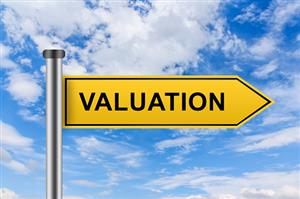
Whether you want to buy or sell a business, you need to know how much the company is truly worth. To understand this more accurately, you will need to engage in a formal independent business valuation, preferably completed by a certified appraiser. There are various approaches for determining value when performing a business appraisal, and the valuation professional can assist in understanding the best methodologies for the business involved. Here are some of the ways an appraisal is analyzed:
Market-Based Approach
For an active company, a market approach can be one approach that measures fair market value and overall position in a competitive environment. Within this approach, there are different methods to consider, including those for public and closely-held businesses, as well as basing it on a multiple of gross revenues or discretionary earnings. Depending on the specifics of the business, one or more of these approaches is utilized and weighed in the analysis
Income-Based Approach
An income perspective can be useful to value companies of all sizes and is particularly effective for firms that operate with a capital investment intensive structure. One method within this approach is the Discounted Cash Flow method, in which an appraiser gauges future revenue five years down the road, and discounts this to determine the present value and ultimately a fair sale price. This can be beneficial for companies that experience varying levels of cash flow and earnings each year.
A second method under the income approach is called Capitalization of Earnings and uses EBITDA (earnings before interest, taxes, depreciation, and amortization) to estimate a single point-in-time value for the company using its cash flow. This method can best work for operations that experience steadier cash flows and have demonstrated consistent growth.
Asset-Based Approach
This approach focuses primarily on the tangible assets of the business while making adjustments to the company’s book values and goodwill in an effort to estimate value for firms with high levels of capitalized investment, such as real estate machinery & equipment and personal property.
There are certain methods that can work best within this approach, with an initial focus on depreciated book values while adjusting for current market value using tangible asset appraisals to complement the business valuation
In summary, the business appraiser considers and weighs these approaches that factor tangible and intangible assets, revenues, profits, markets, industries, and all other relevant components into the equation, to reflect the overall value of the company. The appraiser may ultimately determine only one approach makes sense while in other instances utilizes several into the appraisal analysis to ensure the most reasonable conclusions.


